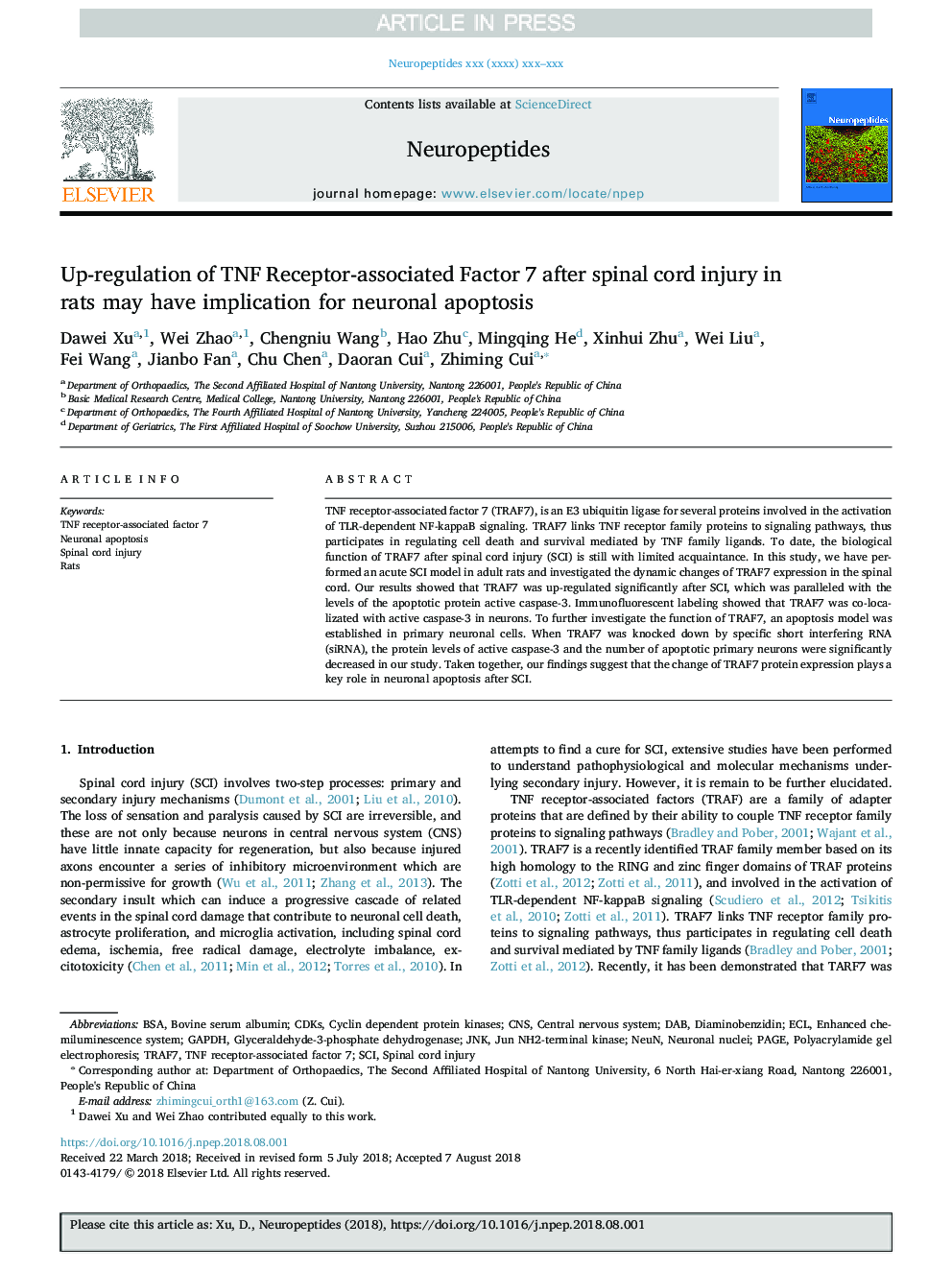| Article ID | Journal | Published Year | Pages | File Type |
|---|---|---|---|---|
| 10212321 | Neuropeptides | 2018 | 9 Pages |
Abstract
TNF receptor-associated factor 7 (TRAF7), is an E3 ubiquitin ligase for several proteins involved in the activation of TLR-dependent NF-kappaB signaling. TRAF7 links TNF receptor family proteins to signaling pathways, thus participates in regulating cell death and survival mediated by TNF family ligands. To date, the biological function of TRAF7 after spinal cord injury (SCI) is still with limited acquaintance. In this study, we have performed an acute SCI model in adult rats and investigated the dynamic changes of TRAF7 expression in the spinal cord. Our results showed that TRAF7 was up-regulated significantly after SCI, which was paralleled with the levels of the apoptotic protein active caspase-3. Immunofluorescent labeling showed that TRAF7 was co-localizated with active caspase-3 in neurons. To further investigate the function of TRAF7, an apoptosis model was established in primary neuronal cells. When TRAF7 was knocked down by specific short interfering RNA (siRNA), the protein levels of active caspase-3 and the number of apoptotic primary neurons were significantly decreased in our study. Taken together, our findings suggest that the change of TRAF7 protein expression plays a key role in neuronal apoptosis after SCI.
Keywords
Related Topics
Life Sciences
Biochemistry, Genetics and Molecular Biology
Endocrinology
Authors
Dawei Xu, Wei Zhao, Chengniu Wang, Hao Zhu, Mingqing He, Xinhui Zhu, Wei Liu, Fei Wang, Jianbo Fan, Chu Chen, Daoran Cui, Zhiming Cui,
